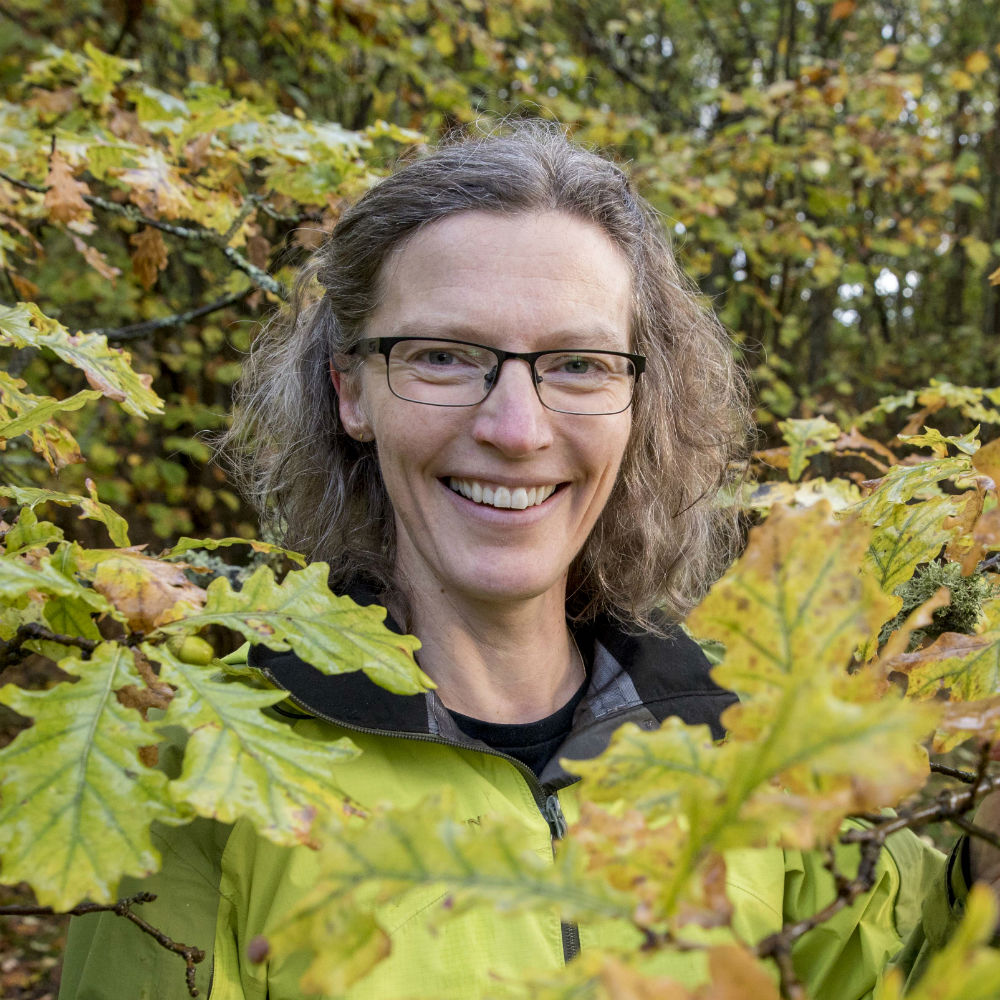ANNE SVERDRUP-THYGESON, Professor of Conservation Biology and insect specialist, discussed how crucial insects are to us presently and the ways we may need to use them in the future on Tuesday (18 Aug) at the Garden Theatre.

She began her conversation with palaeontologist Steve Brusatte by retelling tales from her new book ‘Extraordinary Insects’, which offers numerous bizarre and wonderful descriptions of six legged life.
Thygeson later describes the possibilities of integrating insects into our diet as a primary source of protein, culling the damage done by farming right now without affecting our health.
She said: “You can get some large larvae, and if you fry those up they can be almost 70% protein. That’s nearly three times as much as there is in your beef”
“We also need to prepare these insects. Like you’re not eating the sheep with the wool on. And some of it just comes down to getting used to it, and finding the right names for these products”
She also discussed the exceedingly high reproductive potential of insects, which furthers their suitability as a meat replacement, using fruit flies as an example.
“If you take two fruit flies and leave them under perfect conditions for a year, after one year you will have had 25 generations of fruit flies, and if you take just this 25th generation and stuff them together into a huge ball, that ball would reach from earth to the sun”
In response to an audience members query on the ethical aspect of farming insects for consumption, Thygeson said:
“It is hard to judge another organisms level of sentience. We are looking at everything from our human perspective and it’s always hard to understand what it’s like for an insect for instance.
“One example is how we used to think insects weren’t capable of any advanced actions. However fairly recent research has shown that the honey bee is able to count to four.
“It can separate between one, two, three and four. This is one of the things that has made us realise that insects are capable of much more complicated actions than we had realised before.
“But they are put together in a very different way to us and as far as we know they aren’t capable of feeling pain in the same way as us. But if we are to farm them it is important, like with other farm animals, to find a way to end their life quickly and without any lingering.”
Aside from their hypothetical future prominence in our diet, Anne described how insects are crucial to all agriculture and plant life.
She detailed how many crops simply don’t produce as well without organic pollination.
She said: “We have increased the amount of pollination dependent crops, but the overall turnout of crop has declined, and we believe this is linked to the decline in insect pollinators.”
She describes how both climate change and the modern excess in use of climate change is resulting in the rapid death of many insect species which originally assisted in pollination:
“One of the things we know that those pesticides can do is influence the neural system of the insects – resulting in them losing their ability to find their way back to where they live. Even though these pesticides aren’t acutely lethal, if you can’t find your way back to your hive you will die anyway.
“Climate change is doing many things. What it’s doing for bumblebees is that it is shrinking their distribution area, as it is too hot in the south. Pollinating insects are really having a hard time”
While the loss of insects is detrimental to pollination and the growth of life, it is also damaging natures systems for clearing away life that has died. Thygeson details this, saying:
“One of the other major contributions that we get from insects is the fact that they are small caretakers in nature, recycling all sorts of dead, organic material. Dead trees, dead plants, dead animals and also dung.”
Anne offers advice to those wanting to do their bit on an individual scale and as part of a larger movement.
“A lot of people in the UK have beautiful gardens and spend a lot of time working in their gardens. There are things you can do in your garden to make it better for insects. You can stop mowing your lawn for instance. Let your garden get more, what you could call messy but I’d call nature-like.
“If you have a more heterogeneous garden, if you have more flowers that are blooming all the time, if you leave some dead wood out there, stuff like that will make your garden a better place”
“Also, stop giving insects such a hard time – all the time! If more people start giving them positive PR, I think it will have a ripple effect and reach the people who sit and decide how to deal with land use requirements and politicians who set the budget for how much greenery we should keep in the city.”
Thygeson hammered home the importance of staying hopeful in the face of the ever bleaker situation our climate faces.
“If you don’t have hope yourself, you can’t really make other people hopeful. You have to believe that we can change things, and I really think that there are signs that things are now going in the right direction.
“We have to hold onto the good things and try to make things grow. There is really no other alternative.”
‘Extraordinary Insects’ was published this past April and is available to buy now.